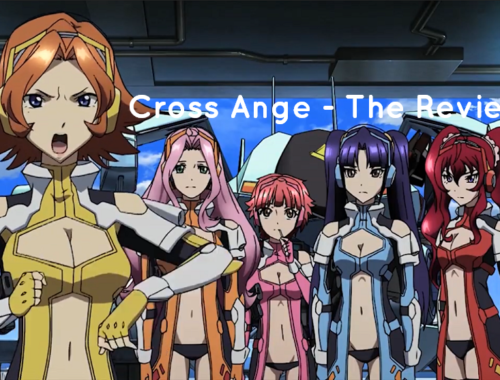
7 Steps to Reviewing Media for Fun and Profit
I have a Twitter account, which I do not use very professionally. And that’s okay! (It’s not okay. I have a social media problem. Someone, send help.) It has proven fun for networking. I recently asked some of my followers what sort of “instructional” blog post they’d like to see me write. Author Chad Davis wrote the following Tweet:
How to review a book. I'm really shit at reviews actually, no idea how to structure it or what to talk about in them
— Chad Normie Davis (@anactualchad) May 20, 2020
Chad, as many of you might remember, is the author of The Komochi Warui Diary, a coming-of-age story I highly recommended. So I was surprised that this individual whom I hold in such high esteem, and who already runs a review podcast with his friends, would be interested in my thoughts on the matter. Complicating things further, it turns out I’m really not that great at reviewing works myself. Along the way, I’ve made friends, sure. But I’ve also made enemies, been banned from groups, acquired a negative reputation, and unlike awesome fun stories I haven’t gotten the heart of the woman I loved at the end.
But, gauntlet thrown, gauntlet taken to an antique roadshow to have it appraised – my tips and guidelines for how to review for fun and profit.
STEP ONE: KNOW WHO YOUR AUDIENCE IS
Who are you writing a review for? This is super important. If you’re just writing reviews to make yourself feel important and heard, your approach is going to be wildly different than if you’re trying to prop up all of your favorite media while tearing down all the media that is antithetical to it. Or maybe you’re writing to those who view the same media you do, in hopes to encourage or warn them depending on your thoughts. Maybe you see yourself as part of a community, and a review is your way of giving back to that community.
This may seem strange, because at the heart of things a review is literally your opinion of something, but written on the internet where it will impact the decisions of others and will last forever and maybe your parole officer will come across it one day and ask questions. If you’re putting a review on the internet where literally anyone with a phone or a computer can view it, however, it should be assumed there is a group of people you are hoping to have see that review. When you are using MyAnimeList dot com to review Japanimation, as an example, is it just to keep a journal of which shows you have watched and your thoughts? Is it to flex on your taste versus lesser fans? Are you hoping to share this list with your parents so they’ll see the type of shows to buy you in the future? These are all questions you’ll need to come to terms with, in no small part because they’ll segue into the second step I’ll share later.
This step is going to be the most abstract, but it will be the zenith of this entire discussion. All roads to reviewing begin with a basic understanding of who the review is intended for.
STEP TWO: DEVISE YOUR RATING SYSTEM
In some mediums, what you are reviewing with is already decided. For example, on Amazon or Goodreads one uses Stars. Movie reviews often use stars as well, although they may use four instead of five and may allow for half stars. Some reviewers use a letter grading system, which may or may not be like the American standard (and may or may not include ranking systems like “S” or “SS.”) Some do so on a scale of one to ten, and others from one to five. Those that use numbers may stick to whole numbers, or may allow for deviations of one tenth, or even hundredths. It’s rare, but not unheard of, for certain reviewers to go farther than that, like their review is intended to be as well calibrated as an engine piston.
Even given what you are reviewing with, it’s important to understand what those numbers mean. It’s also worth noting that what a number means to you may not be what the number, when translated, means to the medium you are using. The biggest example is when reviewing a book on Goodreads versus reviewing that same book on Amazon. On Goodreads, if a book has an average of 3 stars, one might assume that book is “average.” On Amazon, 3 stars is seen as “critical” – and Amazon will be less likely to curate items with this rating based on this. Or, to put it more bluntly, 3 star ratings actively hurt sellers on Amazon. Many users are aware of this, which is why many ratings for a book will be higher on Amazon than they are on Goodreads – a reviewer may “like” a book despite issues with it, and thus leave the book with a 3 star rating on Goodreads but a 4 star rating on Amazon.
To this end, I encourage people to have an idea of what their ratings are suppose to mean. In my book and media reviews, I use a whole star system which is pretty straightforward and easy to understand:

5 Stars: This is a thing I enjoyed immensely. It doesn’t have to be perfect, but it has to be very easily recommendable to a wide group of people who would enjoy this sort of thing.
4 Stars: This is a thing I enjoyed, for the most part. It may have had some noticeable problems. Or maybe I didn’t enjoy it as much as I thought it would, but still concede that the average person might and it’s well done. A lot of the works I read wind up here, and that makes sense, because I tend to purchase things I believe I’ll enjoy.
3 Stars: This is a thing that had parts I enjoyed, but is weighed down by problems. There’s a lot of works that find themselves here that are “I enjoyed it, but am not sure others would given the presentation.” A lot of grammar or formatting mistakes, an interesting story that is poorly presented, a book that’s hundreds of words and most of them are tedious, that sort of thing.
2 Stars: This is a thing I did not enjoy, and it shows. This could be for any number of reasons, and I’ll explain them in my review proper.
1 Star: I am part of a street team, and I’m reviewing the works of the enemy.
That last one is a joke, and one I’ve told a number of times, and should probably stop telling because I have actually been banned from communities, plural, for telling it. Sadly, as the reader can tell from this blog post, I am still sharing it even though it’s the year 2020.
I don’t like leaving one star reviews. I had to have actively loathed whatever I was consuming, or have had a very serious reason to hold disdain for the product, to decide that this is the number of stars I am going to give in a review. A one star review says as much about me as it does the product I give this review, so I have to be extra careful with them. I would encourage any other reviewer to do the same.
So you know your audience, and you have your rating system. Time to write your review!
STEP THREE: ENSURE YOU HAVE A SYNOPSIS SOMEWHERE IN THE REVIEW, USUALLY THE FRONT
When writing your review, you’ll want to have a summary of what the media is about. This may seem to make sense if you’re writing, say, a review about an indie book… yet might seem absolutely strange when writing a review of a Blockbuster movie. I’ve found it important, however, as it shows that you’ve actually read or viewed the thing you are reviewing, or you’re at least skimming other people’s reviews before writing your own. (Another poor joke I should stop making) In the world of reviewing, there’s so many people getting paid to write reviews that false 5 stars are everywhere. There’s also so many easily offended people that unruly 1 star reviews are problematic as well. By having a short synopsis in either the first or second paragraph of your review, you’re letting those reading the review know what it is you are reviewing, and you’re also letting those more familiar with the subject at hand (but maybe not yet sold) know that you do in fact know what you’re talking about. This adds authenticity to your review.
STEP FOUR: TRY NOT TO BE AN ASSHAT
There’s a video reviewer named James Rolfe, and if you don’t know who he is your kids do. In his popular reviews of video games, he shares the worst aspects of some of the worst games in a very exaggerated and angry fashion. He’s good at it because he’s a great actor.
Sadly, the popularity of his reviews have lead to a lot of other people doing similar styles of reviews, and they aren’t great at it because they aren’t actors, they’re just being what I refer to as “asshats” which is to say they wear their butts on their heads, like a derby hat. People who add things to reviews like “I’d rather do this horrible and horribly explicit thing to myself while this other horrible and horribly explicit thing happens and these people I care the opinion of watch, than I would recommend this piece of media.” For one, this is never as clever as the person writing it thinks it is. For another, it tells the reader nothing about what is being reviewed, and only sheds scrutiny on the reviewer. Don’t do this.

STEP FIVE: IF THE REVIEW IS TOO LONG NO ONE WILL READ IT AND EVERYONE WILL HATE YOU
Unless, of course, you break up a long form review with pictures! Or product placement!
Ideally, your review will have an opener (which may or may not be the synopsis), the synopsis if it was not the opener, a few comments with examples that justified what you liked and, as necessary, didn’t like about the media, and a conclusion. This seems complicated in theory, but in practice is very straightforward:
The blog article “7 Steps to Reviewing Media for Fun and Profit” was about as bland as mayonnaise. The author alleged seven rules, but they were all common sense things I could have found elsewhere. Mostly, the article seemed to be a way for the author to flex his own sense of humor, which frankly is god awful. It’s clear, from the reading, that the author of this article is very self-important but unable to actually write anything of warrant. The header has a nice picture of a dusk, though, which I appreciated. One star.
When writing a long-form review, I do find that breaking up all those paragraphs with a few cute pictures does wonders. Sometimes this can be screenshots, quotes from a book, or fun memegens relating to the article in question. Obviously, this is less helpful for people who aren’t posting on their own blog. However, Amazon allows people to post pictures along with their reviews, as an example, and this can do a lot to grab the attention of a reader.
STEP SIX: DEALING WITH FEEDBACK
For some, reviews can be a great way to open up a dialogue with a company or a creator. For others, it can be a great way to meet up with potential fans or detractors who share similar interests than you. How should you handle this feedback?
I think the best way to handle feedback depends on if it’s good or bad. If it’s good, I thank the person and encourage them to send me more of their stuff for free so I can review it. If it’s bad, I put them on blast on social media because who are they to criticize me? I swear, the gall of some people.
I am, of course, half kidding here. Weigh every comment you take with a little bit of salt and a little bit of pepper before making a reply. Sometimes, you as the reviewer may be wrong. Other times, the points you are making are solid, but aren’t being made very well. Other times further, there’s a learning experience for both of you – maybe if something is fixed, you’ll consider changing the review, for example. It does happen! One author I gave a critical, but not god-awful review, reached out to me and was pretty respectful in getting feedback from me before asking me if I’d be willing to change my review and give a higher rating. I ultimately decided to keep the rating, but expanded the review to better explain why I marked it as I did.
Sometimes, creators will love you and encourage you to buy more of their products. This is a trap. If you liked their product, and you buy more of them, the cycle will continue indefinitely. In the case of the indie author world, which is the one I’ve found myself over the last year and a half, I will say that I have fielded offers to beta read books (read them before they are commercially released) and I have been offered free books in return for honest reviews, which is great if I had intended on buying the book in the first place. That, in and of itself, can be considered a form of revenue.
Of course, it’s not all gravy. Sometimes you’re wrong, and you need to address that and move on. The very first book I reviewed of a certain genre I gave a scathing one star revue. Why? Because I hated it. I am glad I gave that revue for two reasons. One, it allowed me to meet up with other people who surprisingly agreed with me. Two, it allowed me to eat crow when I realized that people could agree with me, and we could all be wrong in approaching things this way. In the review, I insulted the author and called his work a failed NaNoWriMo script. These kind of comments have no place in a real review. Worst, I later read another work of the author’s, and absolutely loved it! This particular author, who I won’t name for this sake of this author, is a very solid author – he just writes with certain tropes I don’t enjoy. That’s it. That’s why I was an asshat (see rule number 4.) Fortunately, I could go back in time and edit those reviews, explaining why I was wrong, and give a slightly higher star rating.
But not much, because seriously, I hated that book so god damned much. But hey, I also learned from the experience! That goes for something.

You don’t want to be the reviewer, or the creator, hunting people down because they didn’t like your work and threatening them. Don’t be that guy, or gal. It will explode in your face. I will probably be one of the people liking and sharing the posts that talk about it, or even posting about it on Reddit before your fellow author friends have to remove the post and shadowban me from the subreddit, but by then the damage done will be too much and you’ll have to save face by having the proceeds to your next book go to disabled veterans or something. HOLY FUN TIMES THAT IS WAY TOO SPECIFIC I DOUBT THAT I’M TALKING ABOUT A REAL THING THAT HAPPENED HERE.
STEP 7: PROFIT
If you’re particularly involved in a fandom or a hobby, you can eventually take your reviews and the knowledge gained from it into a number of different venues. For me, it was blogging, which I supplement with a few Google ads no one ever clicks, and a few Amazon referral links that make me on average like three dollars a month. For others, they can take those reviews and make videos on Youtube, where they can hope to gain sponsorship through networking, and maybe even get paid!
I find the two biggest “tricks” to getting any sort of kickback from reviews is to be prolific, and to network. In this, there’s a lot of examples of your work, and doors open themselves to new opportunities.
If making money off of some of your passions is a thing you’re really interested in, then you should consider checking into Flavio Medeiros’s Side Business Launch programs. This is not a paid endorsement, but this is a program I’ve been a member of for some time and would recommend for anyone looking to take the things they love and turn them into viable businesses. Learn how to publish on Amazon, or run an e-mail list, or find a niche and carve a name for yourself! Some of Mr. Medeiros’s entry level programs are free; most others can be purchased a la carte, or with a monthly subscription that’s less than a thing you pay $10 for, because as of this writing the subscription is $9. Also of this writing he’s offering an introductory offer for your first month, so go check it out. I’m not as active as I should be there, but there’s so many solid people discussing their ideas and their niche that I constantly feel there is hope I can do better. I’m also very impressed at just how hands on with the program Mr. Medeiro is. A lot of similar programs cost hundreds of dollars and it’s very obvious that the people taking the course are getting easily culled information set to post at a specific time. Not so here.




One Comment
Chad
Thanks for the plugs, my dude, the VH boys will be excited.
This is great. I didn’t really get why people felt the urge to summarize the media all the time, but “proving you read it” is solid enough for me lol. I personally hate long summaries though so I’ll keep em short in my reviews.
Also it’s not just you flexing your humor, your insertions about how not to be an asshat or enrage a community are valuable. I grew up on websites with trolls and bullies and sometimes I accidentally say things I shouldn’t, so I literally need someone to say “This is the kind of shit you shouldn’t say in a review.”
Said asshats referenced in the piece needed to reel it in a little bit, sure, but the honesty is greatly appreciated and admirable. Thanks for the post, senpai.